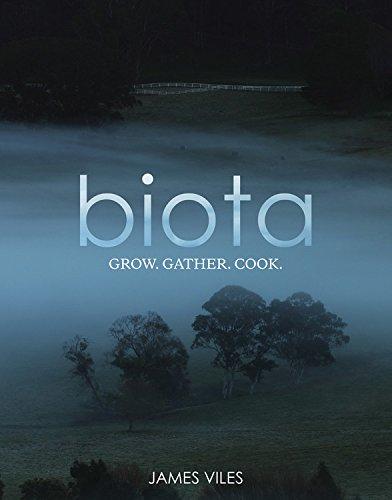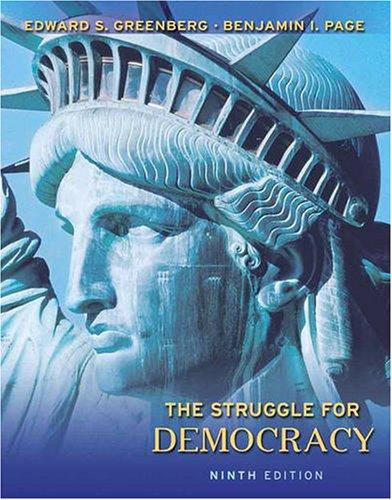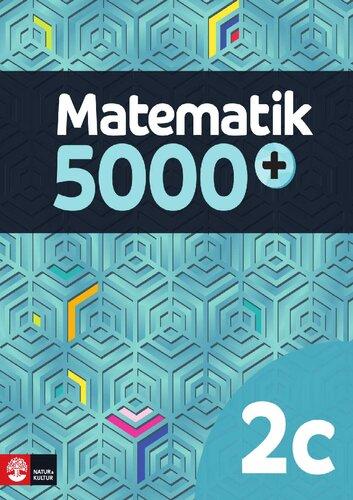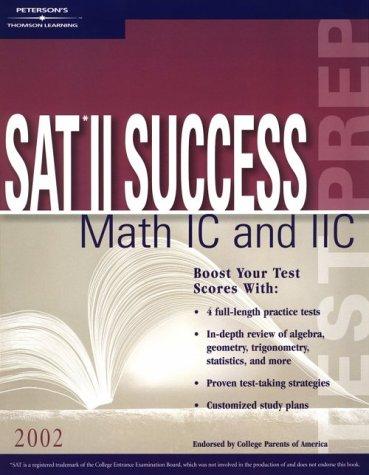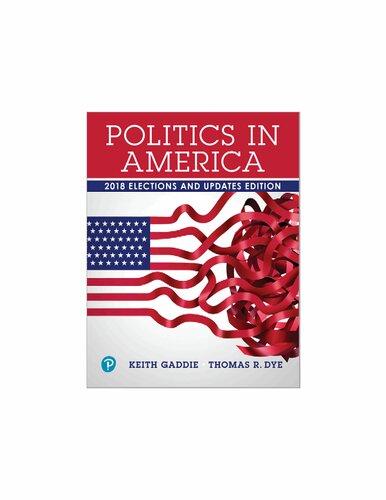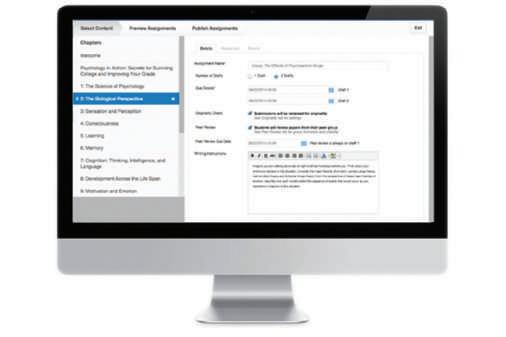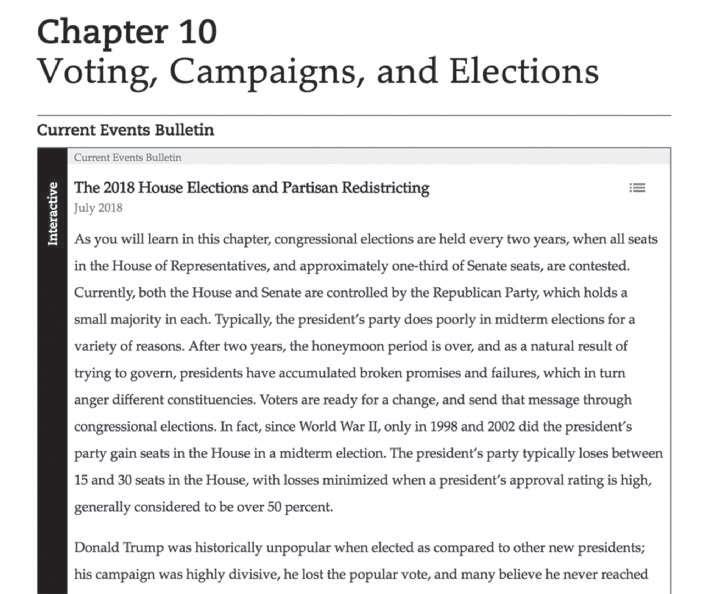(Ebook) The Struggle For Democracy: 2018 Elections and Updates Edition by Edward S. Greenberg, Benjamin I. Page, David Doherty, Scott L. Minkoff ISBN 9780135202760, 0135202760 download
https://ebooknice.com/product/the-struggle-fordemocracy-2018-elections-and-updates-edition-37289530
Start reading on any device today!
(Ebook) Struggle for Democracy, The, 2014 Elections and Updates Edition by Edward S. Greenberg & Benjamin I. Page ISBN 9780133915273, 0133915271
https://ebooknice.com/product/struggle-for-democracy-the-2014-elections-andupdates-edition-10417276
ebooknice.com
(Ebook) Biota Grow 2C gather 2C cook by Loucas, Jason; Viles, James ISBN 9781459699816, 9781743365571, 9781925268492, 1459699815, 1743365578, 1925268497
https://ebooknice.com/product/biota-grow-2c-gather-2c-cook-6661374
ebooknice.com
(Ebook) The Struggle for Democracy (9th Edition) by Edward S. Greenberg, Benjamin I. Page ISBN 9780205648467, 0205648460
https://ebooknice.com/product/the-struggle-for-democracy-9th-edition-2176774
ebooknice.com
(Ebook) Struggle for democracy, 2016 election edition by Greenberg, Edward S;Page, Benjamin I(Contributor) ISBN 9780134551869, 9780134571706, 0134551869, 0134571703
https://ebooknice.com/product/struggle-for-democracy-2016-electionedition-22125678
ebooknice.com
(Ebook) Cambridge IGCSE and O Level History Workbook 2C - Depth Study: the United States, 1919-41 2nd Edition by Benjamin Harrison ISBN 9781398375147, 9781398375048, 1398375144, 1398375047
https://ebooknice.com/product/cambridge-igcse-and-o-level-historyworkbook-2c-depth-study-the-united-states-1919-41-2nd-edition-53538044
ebooknice.com
(Ebook) Matematik 5000+ Kurs 2c Lärobok by Lena Alfredsson, Hans Heikne, Sanna Bodemyr ISBN 9789127456600, 9127456609
https://ebooknice.com/product/matematik-5000-kurs-2c-larobok-23848312
ebooknice.com
(Ebook) SAT II Success MATH 1C and 2C 2002 (Peterson's SAT II Success) by Peterson's ISBN 9780768906677, 0768906679
https://ebooknice.com/product/sat-ii-success-math-1c-and-2c-2002-peterson-s-satii-success-1722018
ebooknice.com
(Ebook) Master SAT II Math 1c and 2c 4th ed (Arco Master the SAT Subject Test: Math Levels 1 & 2) by Arco ISBN 9780768923049, 0768923042
https://ebooknice.com/product/master-sat-ii-math-1c-and-2c-4th-ed-arco-masterthe-sat-subject-test-math-levels-1-2-2326094
ebooknice.com
(Ebook) Politics in America 11th Ed. (2018 Elections and Updates Edition) by Gaddie, Dye
https://ebooknice.com/product/politics-in-america-11th-ed-2018-elections-andupdates-edition-11667886
ebooknice.com
Revel enables students to read and interact with course material on the devices they use, anywhere and anytime. Responsive design allows students to access Revel on their tablet devices, with content displayed clearly in both portrait and landscape view.
Highlighting , note taking , and a glossary personalize the learning experience. Educators can add notes for students, too, including reminders or study tips
Revel’s variety of writing activities and assignments develop and assess concept mastery and critical thinking
To the Instructor
Ben Page and I decided to write this book because, as instructors in introductory American government courses, we could not find a book that provided students with usable tools for critically analyzing our political system and making judgments about how well our government works. The Struggle for Democracy does not simply present facts about government and politics—it also provides several analytical and normative frameworks for putting the flood of facts we ask our students to absorb into a more comprehensible form. By doing so, I believe we have made it easier and more satisfying for instructors to teach the introductory course.
Our goal all along was to create a textbook that treats students as adults, engages their intellectual and emotional attention, and encourages them to be active learners. Every element in this text is designed to promote the kind of critical thinking skills scholars and instructors believe students need to become the engaged, active, and informed citizens that are so vital to any democracy. Over the next several sections, I show the elements we created to meet these objectives.
Features
aPProaCH The Struggle for Democracy provides several analytical and normative frameworks for putting the flood of facts teachers ask their students to absorb into a more comprehensible form. Although all topics that are common and expected in the introductory American government and politics course are covered in this textbook, the two main focal points—an analytical framework for understanding how politics and government work and the normative question “How democratic are we?” (addressed in concluding remarks at the end of each chapter under the “Using the Democracy Standard” headline)—allow for a fresh look at traditional topics.
This book pays great attention to structural factors—which include the American economy, social and demographic change in the United States, technological innovations and change, the American political culture, and changes in the global system— and examines how they affect politics, government, and public policy. These factors are introduced in Chapter 4—a chapter unique among introductory texts—and they are brought to bear on a wide range of issues in subsequent chapters.
The Struggle for Democracy attends very carefully to issues of democratic political theory . This follows from a critical thinking objective, which asks students to assess the progress of, and prospects for, democracy in the United States and from a desire to present American history as the history of the struggle for democracy. For instance, Struggle examines how the evolution of the party system has improved democracy in some respects in the United States, but hurt it in others.
Struggle also includes more historical perspective because it provides the necessary context for thinking comprehensively and critically about contemporary political debates. It shows, for example, how the expansion of civil rights in the United States is tied to important historical events and trends.
Comparisons of developments, practices, and institutions in the United States with those in other nations add another dimension to our understanding. We can better comprehend how our system of social welfare works, for example, when we see how other rich democratic countries deal with the problems of poverty, unemployment, and old age.
• Captivating videos bring to life chapter content and key moments in American government. Videos are incorporated into the chapters, where pertinent, and can also be easily accessed from the instructor’s Resources folder within Revel.
• ABC News footage and Smithsonian short documentary videos provide examples from both current and historical events. Examples of footage include FDR visiting the newly completed Boulder Dam (Hoover Dam), an NRA lobbyist’s proposition to put guns in schools one week after the Sandy Hook tragedy, important events in African Americans’ struggle for equality, how war and the preparation for war increased the role of the federal government, and President Obama’s struggle to make a case for air strikes in Syria.
• Pearson Originals for Political Science are compelling stories about contemporary issues. These short-form documentaries contextualize the complex social and political issues impacting the world today. In addition to helping students better understand core concepts, Pearson Originals inspire students to think critically as empowered citizens who can inspire social and political change. Explaining complex political issues in a simplified and entertaining way, Pearson Originals for Political Science help students become informed members of society. Videos in these short-form documentary series include Marijuana and Federalism: Who’s in Charge?; Who Should Be Allowed to Call Themselves “American”?; and What Is the Emoluments Clause and Why Should I Care About It?
• Pearson’s Politics Hidden in Plain Sight video series does exactly that—provides students with concrete examples of how politics influences the activities of their daily lives—from using their cellphones to going to a convenience store—in ways they likely had not previously noticed.
• In addition, each chapter concludes with an author-narrated video subtitled “Why It Matters,” helping students to put chapter content in a real-world context. For example, Chapter 16, “Civil Rights: The Struggle for Political Equality,” concludes with a discussion of the real-life implications of affirmative action in college admission and on campus—a topic immediately relevant to today’s undergraduate students.
• Shared writing prompts, following each chapter’s Conclusion and Review section, encourage students to consider how to address the challenges described in the chapter in an essay format. For example, in Chapter 3, students must argue for or against the proposition that the federal government should not provide funds to support large infrastructure projects, such as the construction and expansion of interstate highways. Through these shared writing prompts, instructors and students can address multiple sides of an issue by sharing their own views and responding to each other’s viewpoints.
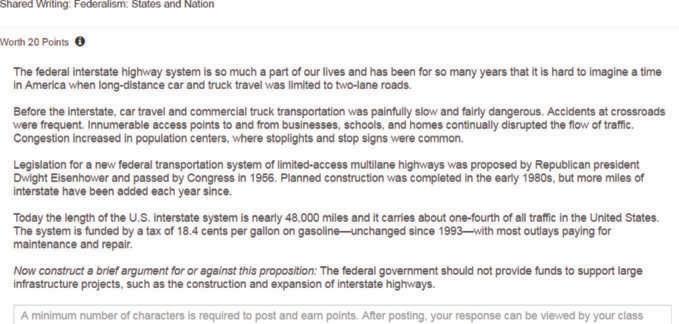
• Essay prompts are from Pearson’s Writing Space, where instructors can assign both automatically graded and instructor-graded prompts. Writing Space is the best way to develop and assess concept mastery and critical thinking through writing. Writing Space provides a single place within Revel to create, track, and grade writing assignments; access writing resources; and exchange meaningful, personalized feedback quickly and easily to improve results. For students, Writing Space provides everything they need to keep up with writing assignments, access assignment guides and checklists, write or upload completed assignments, and receive grades and feedback—all in one convenient place. For educators, Writing Space makes assigning, receiving, and evaluating writing assignments easier. It’s simple to create new assignments and upload relevant materials, see student progress, and receive alerts when students submit work. Writing Space makes students’ work more focused and effective, with customized grading rubrics they can see and personalized feedback. Writing Space can also check students’ work for improper citation or plagiarism by comparing it against the world’s most accurate text comparison database available from Turnitin.
• Learning Management Systems Pearson provides Blackboard Learn™, Canvas™, Brightspace by D2L, and Moodle integration, giving institutions, instructors, and students easy access to Revel. Our Revel integration delivers streamlined access to everything your students need for the course in these learning management system (LMS) environments. Single Sign-on : With single sign-on, students are ready on their first day. From your LMS course, students have easy access to an interactive blend of authors’ narrative, media, and assessment. Grade Sync: Flexible, on-demand grade synchronization capabilities allow you to control exactly which Revel grades should be transferred to the LMS gradebook.
• revel Combo Card The Revel Combo Card provides an all-in-one access code and loose-leaf print reference (delivered by mail).
Supplements
Make more time for your students with instructor resources that offer effective learning assessments and classroom engagement. Pearson’s partnership with educators does not end with the delivery of course materials; Pearson is there with you on the first day of class and beyond. A dedicated team of local Pearson representatives will work with you to not only choose course materials but also integrate them into your class and assess their effectiveness. Our goal is your goal—to improve instruction with each semester.
Pearson is pleased to offer the following resources to qualified adopters of The Struggle for Democracy. Several of these supplements are available to instantly download on the Instructor Resource Center (IRC); please visit the IRC at www.pearsonhighered .com/irc to register for access.
TEST banK Evaluate learning at every level. Reviewed for clarity and accuracy, the Test Bank measures this book’s learning objectives with multiple choice, true/false, fill-in-the-blank, short answer, and essay questions. You can easily customize the assessment to work in any major learning management system and to match what is covered in your course. Word, BlackBoard, and WebCT versions available on the IRC and Respondus versions available upon request from www.respondus.com.
PEarSon MYTEST This powerful assessment generation program includes all of the questions in the Test Bank. Quizzes and exams can be easily authored and saved online and then printed for classroom use, giving you ultimate flexibility to manage assessments anytime and anywhere. To learn more, visit, www.pearsonhighered .com/mytest.
I n ST r UCT or ’S M an U a L Create a comprehensive roadmap for teaching classroom, online, or hybrid courses. Designed for new and experienced instructors, the Instructor’s Manual includes a sample syllabus, lecture and discussion suggestions, activities for in or out of class, and essays on teaching American Government. Available on the IRC.
P o WE r P o I n T P r ESE n TaTI on Make lectures more enriching for students. The PowerPoint Presentation includes a full lecture outline and full-color images of maps and art. All PowerPoints are ADA compliant.
LIVESLIDES Social Explorers are data-rich interactive maps and figures that enable students to visually explore demographic data to understand how local trends impact them while improving data and statistical literacy. LiveSlides are dynamic lecture slides, which give you a direct path to all the Social Explorers within your Revel course. Available within Revel and on the IRC.
Acknowledgments
Heartfelt thanks and gratitude go to Ben Page, friend and long-time collaborator, who co-authored many editions of this book, though not this one. For over a year after I first broached the idea about our doing a textbook together, we hashed out whether it was possible to write a textbook that would be consistent with our standards as teachers and scholars, offer a perspective on American government and politics that was unique in the discipline, and do well in the marketplace. Once we concluded that it was possible to produce a textbook that hit these benchmarks and that we passionately wanted to make happen, we spent more than two years writing what became the First Edition of The Struggle for Democracy. When Ben and I started this process, we were only acquaintances. Over the years, in the process of collaborating on the publication of several editions of this textbook, we became and remain very good friends.
Robinson, Houston Baptist University; Cessna Winslow, Tarleton State; Carrie Currier, Texas Christian University; Paul Jorgensen, University of Texas Rio Grande Valley; Steve Lem, Kutztown University; Meng Lu, Sinclair Community College; James Pearn, Southern State Community College; Blake Farrar, Texas State University; Carlin Barmada, NVCC; Michael Chan, California State University, Long Beach; Mehwish, SUNY Buffalo State; Daniel Tirone, Louisiana State University; Richard Haesly, California State University, Long Beach; Hyung Park, El Paso Community College; Jesse Kapenga, UTEP; Stephanie A. Slocum−Schaffer, Shepherd University; Augustine Hammond, Augusta University; Shawn Easley, Cuyahoga Community College; Darius Smith, Community College of Aurora; Robert Glover, University of Maine; Carolyn Cocca, State University of NY, College at Old Westbury; Benjamin Arah, Bowie State University; Ahmet Turker, Pima Community College; Eric Loepp, UW−Whitewater; Holly Lindamod, University of North Georgia; Denise Robles, San Antonio College; Asslan Khaligh, Alamo−San Antonio College; Brandy Martinez, San Antonio College; Andrew Sanders, Texas A&M University, San Antonio; Mohsen Omar, Northeast Lakeview College; Heather Frederick, Slippery Rock University; Heather Rice, Slippery Rock University; Leslie Baker, Mississippi State University; Jamie Warner, Marshall University; Will Jennings, University of Tennessee; Arjun Banerjee, University of Tennessee, Knoxville; Jonathan Honig, University of Tennessee; Rachel Fuentes, University of Tennessee, Knoxville; Andrew Straight, University of Tennessee, Knoxville; Margaret Choka, Pellissippi State Community College; Christopher Lawrence, Middle Georgia State University; LaTasha Chaffin, College of Charleston; Jeff Worsham, West Virginia University; Cigdem Sirin−Villalobos, University of Texas at El Paso; Lyle Wind, Suffolk Community College; Marcus Holmes, College of William & Mary; Kurt Guenther, Palm Beach State College; Kevin Wagner, Florida Atlantic University; Eric Sands, Berry College; Shari MacLachlan, Palm Beach State College; Sharon Manna, North Lake College; Tamir Sukkary, American River College; Willie Hamilton, Mt. San Jacinto College; Linda Trautman, Ohio University−Lancaster; Dr. William H, Kraus, Motlow State Community College; Kim Winford, Blinn College; Lana Obradovic, University of Nebraska at Omaha; Doug Schorling, College of the Sequoias; Sarah Lischer, Wake Forest University; Ted Clayton, Central Michigan University; Steven Greene, North Carolina State University; Sharon Navarro, University of Texas at San Antonio; Curtis Ogland, San Antonio College; Henry Esparza, UT San Antonio; Mario Salas, UTSA; Robert Porter, Ventura College; Will Jennings, University of Tennessee; Haroon Khan, Henderson State University; Brenda Riddick, Houston Community College; Julie Lantrip, Tarrant County College; Kyle C. Kopko, Elizabethtown College; Kristine Mohajer, Austin Community College (ACC); Dovie D. Dawson, Central Texas College; Joycelyn Caesar, Cedar Valley College; Daniel Ponder, Drury University
aPSa TLC 2018 Mujahid Nyahuma, Community College of Philadelphia; Tahiya Nyahuma, NCAT; Christopher Lawrence, Middle Georgia State University; Jason Robles, University of Colorado; Tim Reynolds, Alvin Community College; Marilyn C. Buresh, Lake Region State College; Frances Marquez, Gallaudet University; Natasha Washington, Liberal Arts and Communications; Jonathan Honig, University of Tennessee–Knoxville; Ayesha Ahsanuddin, University of Tennessee–Knoxville; Arjun Banerjee, The University of Tennessee–Knoxville; Jesse R. Cragwall, Tusculum College and Pellissippi State Community College; Ms. Amnah H. Ibraheem, University of Tennessee–Knoxville; Karl Smith, Delaware Technical Community College; Richard Waterman, University of Kentucky; Peggy R. Wright, ASU–Jonesboro; Christopher Hallenbrook, Bloomsburg University; Eric Loepp, UW–Whitewater; Robert Glover, University of Maine; Heather Rice, Slippery Rock University; Shawn Easley, Cuyahoga Community College; Benjamin Arah, Bowie State University; Andrew Straight, University of Tennessee; Rachel Fuentes, University of Tennessee at Knoxville; Stephanie A. Slocum−Schaffer, Shepherd University; Will Jennings, University of Tennessee
a PS a 2017 Jooeun Kim, Georgetown; Leonard L. Lira, San José State University; Abigail Post, University of Virginia; Jamilya Ukudeeva, Chabot College; Shannon Jenkins, University of Massachusetts–Dartmouth; Matthew Platt, Morehouse College; Sara Angevine, Whittier College; Andy Aoki, Augsburg University; Stephen Meinhold, University of North Carolina–Wilmington; Manoutchehr Eskandari−Qajar, Santa Barbara City College; Clayton Thyne, University of Kentucky; Alice Jackson, Morgan State University; Mark Rom, Georgetown University; Krista Wiegand, University of Tennessee; Geoffrey Wallace, University of Washington; Precious Hall, Truckee Meadows Community College; Patrick Larue, University of Texas at Dallas; Margot Morgan, Indiana University Southeast; Patrick Wohlfarth, University of Maryland; Christian Grose, University of Southern California; Clinton Jenkins, George Washington University; Jeffrey W. Koch, US Air Force Academy and SUNY Geneseo; Albert Ponce, Diablo Valley College; Justin Vaughn, Boise State University; Joe Weinberg, University of Southern Mississippi; Cindy Stavrianos, Gonzaga University; Kevan M. Yenerall, Clarion University; Katherine Barbieri, University of South Carolina; Elsa Dias, Metropolitan State University of Denver; Maria Gabryszewska, Florida International University; Erich Saphir, Pima Community College; Mzilikazi Kone, College of the Desert; Mary McHugh, Merrimack College; Joel Lieske, Cleveland State University; Joseph W. Roberts, Roger Williams University; Eugen L. Nagy, Central Washington University; Henry B. Sirgo, McNeese State University; Brian Newman, Pepperdine University; Bruce Stinebrickner, DePauw University; Amanda Friesen, IUPUI; LaTasha Chaffin, College of Charleston; Richard Waterman, University of Kentucky
MPS a 2018 Adam Bilinski, Pittsburg State University; Daniel Chand, Kent State University; Agber Dimah, Chicago State University; Yu Ouyang, Purdue University Northwest; Steven Sylvester, Utah Valley University; Ben Bierly, Joliet Junior College; Mahalley Allen, California State University, Chico; Christian Goergen, College of DuPage; Patrick Stewart, University of Arkansas, Fayettville; Richard Barrett, Mount Mercy University; Daniel Hawes, Kent State University; Niki Kalaf−Hughes, Bowling Green State University; Gregg R. Murray, Augusta University; Ryan Reed, Bradley University; Kimberly Turner, College of DuPage; Peter Wielhouwer, Western Michigan University; Leena Thacker Kumar, University of Houston−DTN; Debra Leiter, University of Missouri Kansas City; Michael Makara, University of Central Missouri; Ola Adeoye, University of Illinois–Chicago; Russell Brooker, Alverno College; Dr. Royal G. Cravens, Bowling Green State University; Vincent T. Gawronski, Birmingham−Southern College; Benjamin I. Gross, Jacksonville State University; Matthew Hitt, University of Northern Colorado; Megan Osterbur, New England College; Pamela Schaal, Ball State University; Edward Clayton, Central Michigan University; Ali Masood, California State University, Fresno; Joel Lieske, Cleveland State University; Patrick Wohlfarth, University of Maryland; Steven Greene, NC State; Will Jennings, University of Tennessee; Haroon Khan, Henderson State University; Kyle Kopko, Elizabethtown College; Hyung Lae Park, El Paso Community College; Linda Trautman, Ohio University–Lancaster
This page intentionally left blank


